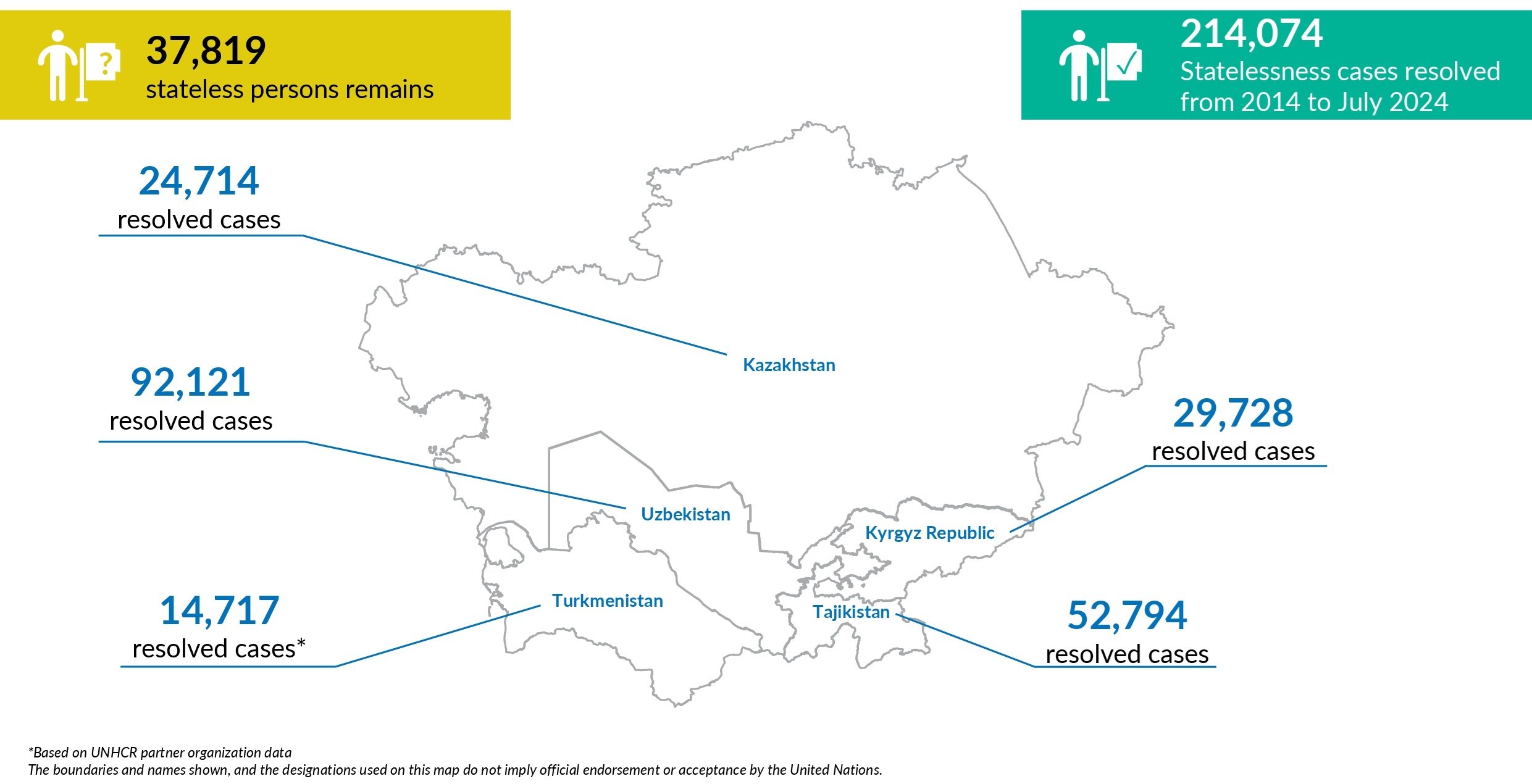Nationality is a fundamental human right. It is something most of us take for granted. But there are millions of people in the world who don’t have a nationality.
They are classified as stateless. Without a nationality, you are invisible in the eyes of the law. Statelessness endangers one of the most fundamental aspects of a person’s wellbeing: their identity.
But statelessness is not inevitable. It can be solved. UNHCR calls on all states to take necessary action to end statelessness.
Because no one should be made to feel invisible. And everyone has the right to say ‘I Belong’.
What does it mean to be stateless?
UNHCR Goodwill Ambassador, Cate Blanchett explains statelessness
Statelessness in Central Asia
As of June 2024, around 37,000 people were known to be stateless across Central Asia. With stateless people continuously identified, the true number is believed to be higher.
A majority of stateless people in Central Asia are ex-citizens of the former Soviet Union who have not yet acquired or confirmed citizenship of the independent States. Others are born stateless or became stateless due to gaps in nationality laws, international migration, and mixed marriages.
In Central Asia, UNHCR serves:
- Stateless persons: individuals recognized and documented by the State as being without any nationality; and
- Persons with undetermined nationality: individuals who do not have proof that they possess any nationality, and have links to more than one State, or are perceived and treated by the authorities in the State of residence as possessing such.

As of July 2024
Pledges to End Statelessness
Since 2019, States, academia, NGO consortia and the UN in Central Asia have made 38 pledges to the Global Compact on Refugees – over half of which commit to reducing, preventing, and ending statelessness.
About the #IBelong Campaign to End Statelessness
Launched in November 2014, the #IBelong Campaign aims to end statelessness within ten years, by identifying and protecting stateless people, resolving existing situations of statelessness and preventing the emergence of new cases. Through legal advocacy and awareness-raising, UNHCR works with governments and partners around the globe towards achieving the Campaign goals.
The #IBelong Campaign to End Statelessness directly advances the UN’s Sustainable Development Goal (SDG) 16.9: By 2030, provide legal identity for all, including birth registration. Ending statelessness also contributes to SDG targets relating to gender equality, education, work and health, among others.
Ensuring that no one is left behind is key to commitments made by all nations, to strive for peace and prosperity for people and the planet.


